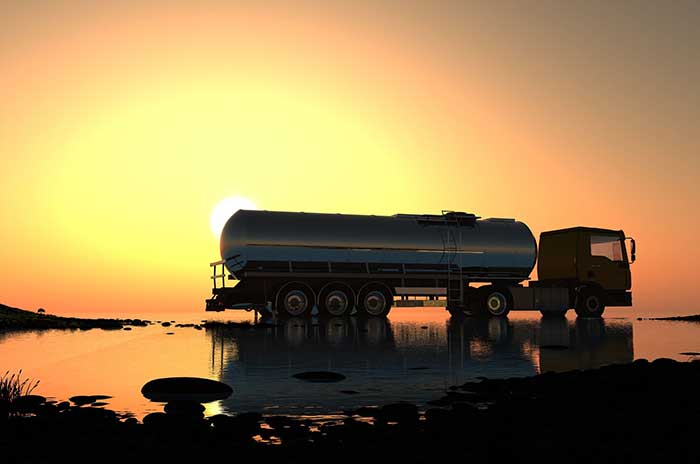
Recovering oil from the surface of water in quantity is one thing‚ but storage facilities is another. Gobbler Boats can supply as many OSRV’s as needed for oil recovery‚ and equally as many bladders to safely contain the oil on a temporary basis‚ but organisation is needed to get it to the waiting ships. Depending on country and location‚ ships can be moored alongside a dock or oil terminal to make things easy‚ but more than likely in under developed countries‚ such luxuries won’t exist and tankers will be anchored up to five miles offshore.
No matter‚ we can deal with all situations and in doing so will again need local involvement.
In situations as Nigeria‚ the oil will need to be transported from difficult to access locations within the Niger Delta. Tanker trucks might be available to transport the oil to the coast‚ if not it’ll have to be towed down river as a necklace of bladders using higher powered Gobblers‚ usually used for the moving of vegetation islands. In the event this becomes a problem‚ Gobbler will build mini–tug boats specially for he purpose of towing strings of bladders out to the ships‚ where GoPods will be pre–anchored to pump bulk oil into the ships.

With enough Gobblers and bladders in service‚ and several GoPods on station‚ a tanker can be quickly loaded and on its way to the nearest recycle facility. With careful organisation‚ a sizeable fleet of Gobbler OSRV’s deployed for towing bladders‚ can quickly keep a steady stream of ships occupied‚ the more oil sold‚ the bigger the workforce and the quicker the host country is returned to normal.
Equally‚ pre–compressed loads of biomass‚ surplus to domestic use or power station requirements‚ can be shipped to recycling centres nearest the host country for maximum profit‚ for fraud–free re–investment into the clean–up project.
No matter the product for recycling‚ albeit oil‚ biomass‚ vegetation or plastic‚ everything plays a part in the re–habilitation process‚ and paid local participation is the key to success.